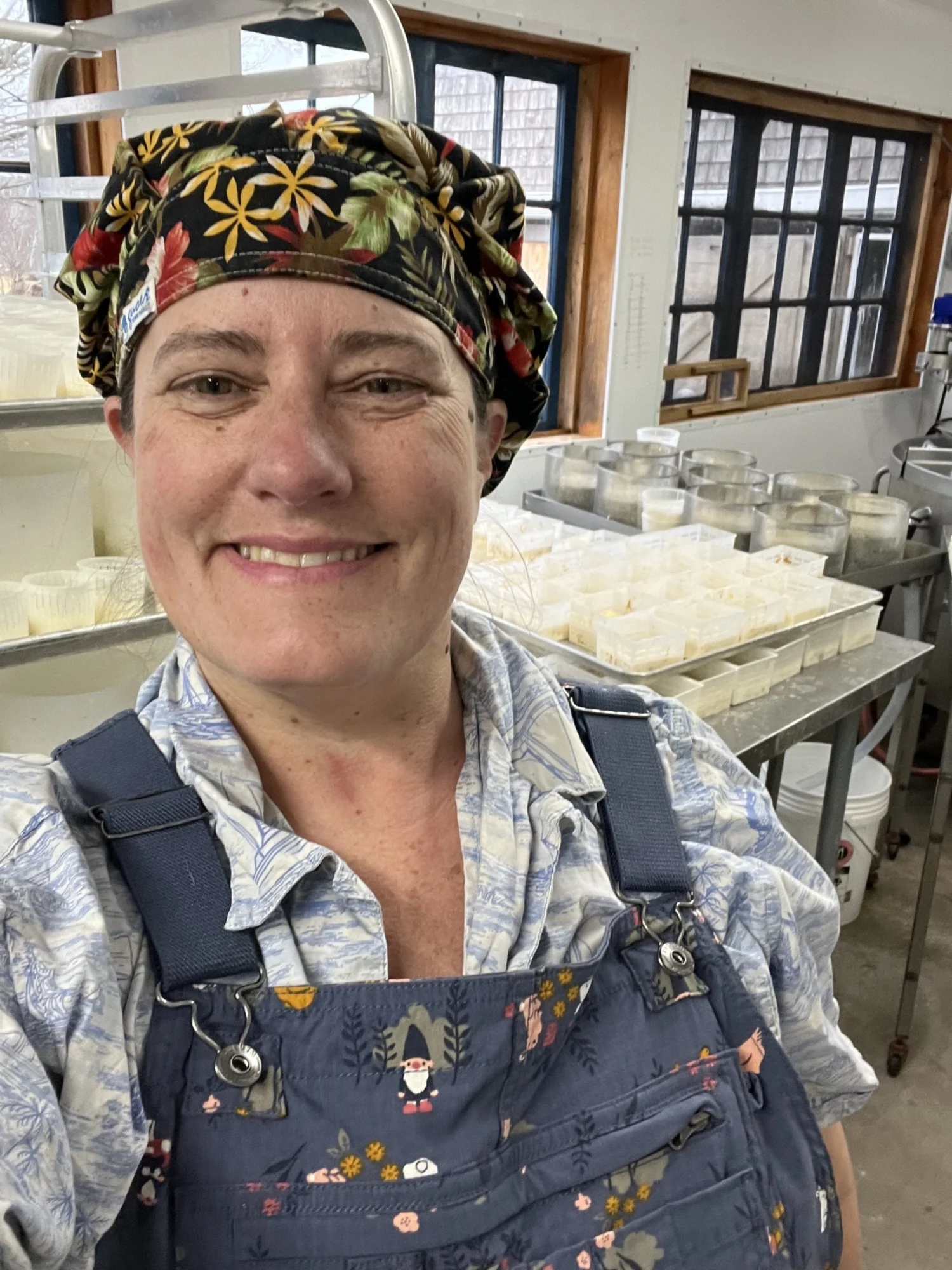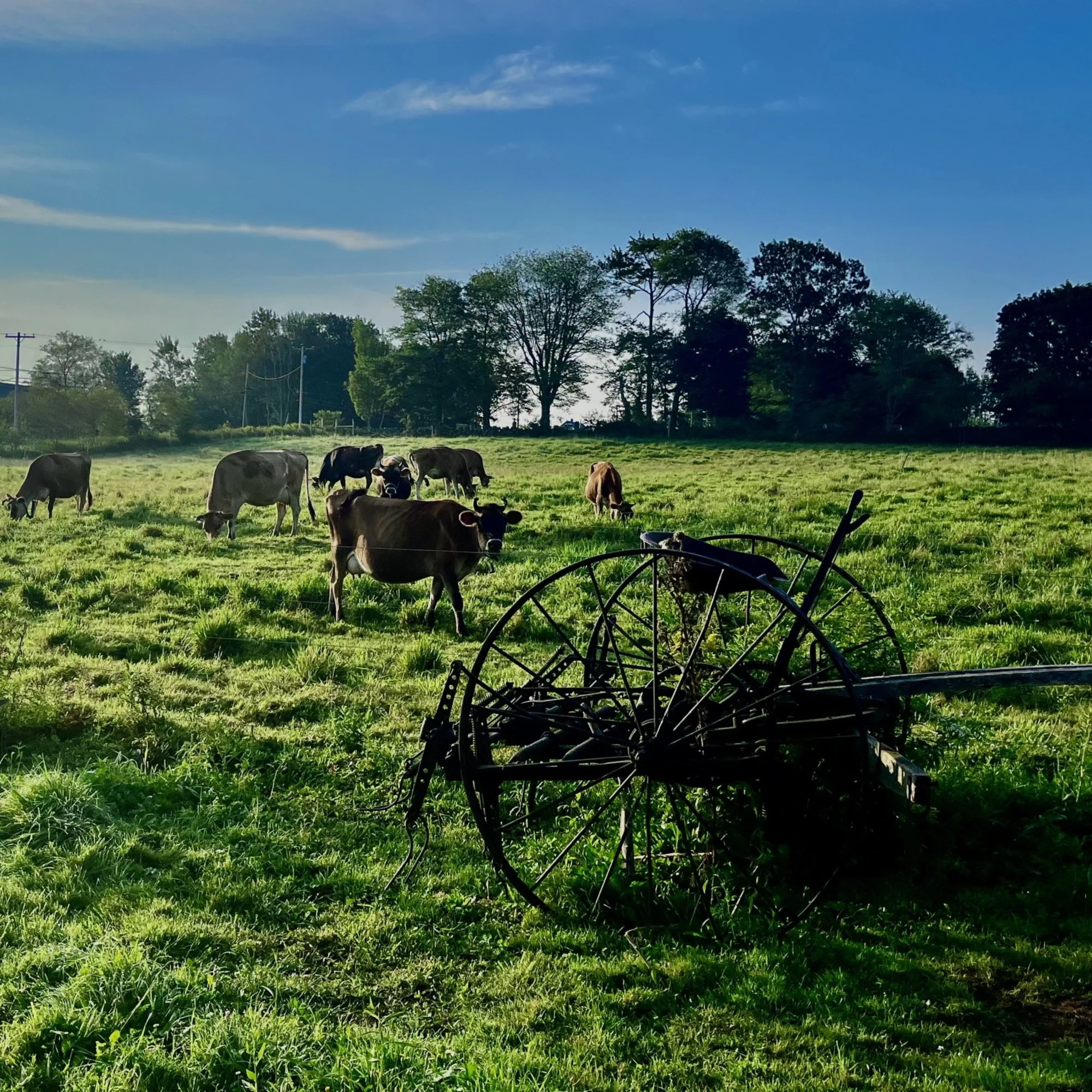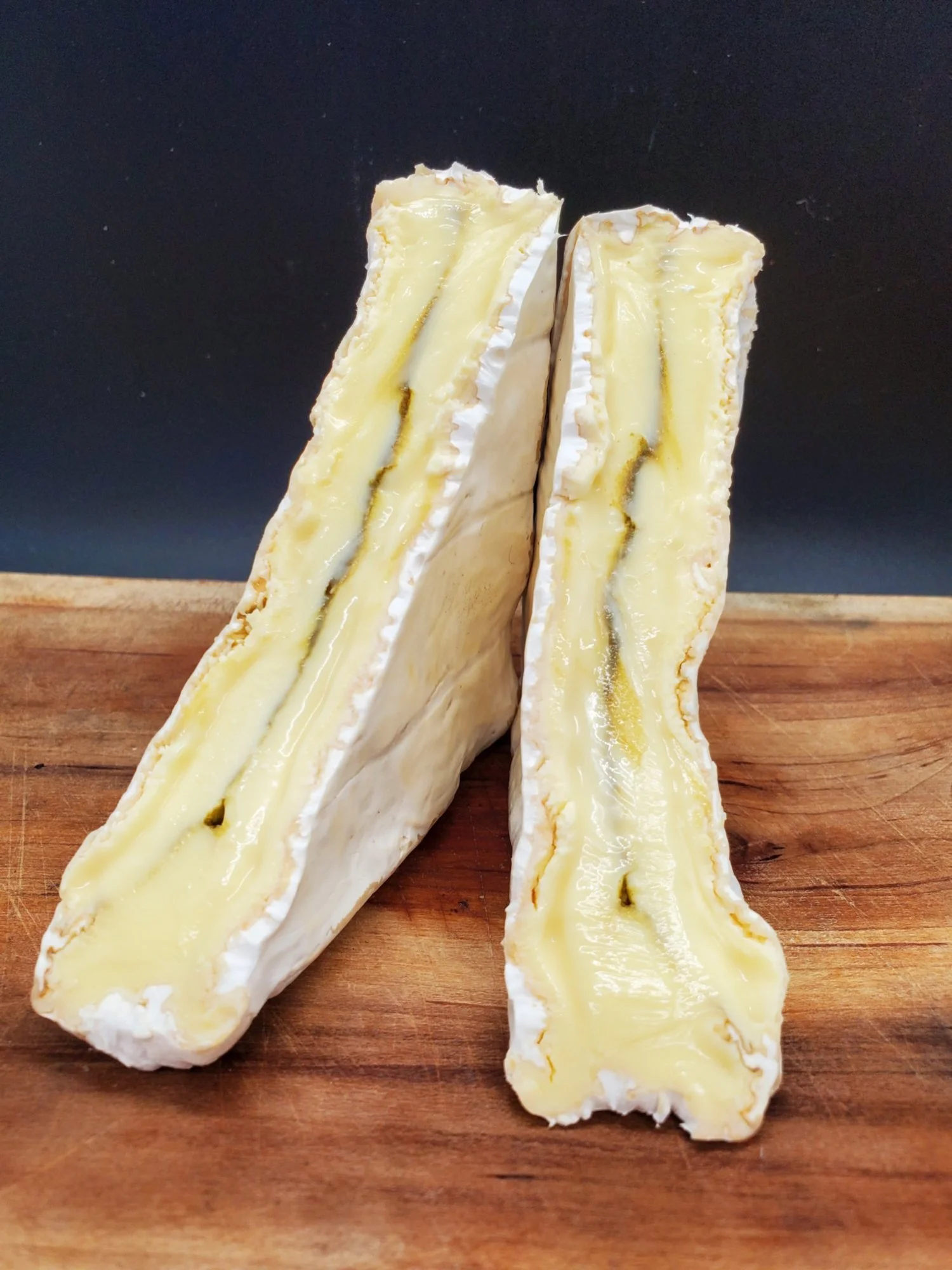What You Should Know about Cheese in Maine
Maine photo credit Mark Tegethoff
If you haven't visited Maine, you might not know much about cheese being produced there, but it is celebrated among those in the know. A reflection of place and connected to some of the best practices in cheesemaking, cheeses from Maine belong on the boards of anyone enamored with terroir-driven, farmstead style, progressive cheesemaking. Traveling around Maine you can find local cheeses at farmer's markets and at farms.
The biggest challenge of getting those small-batch dairy treasures on your cheeseboard is something that, thankfully, producers and cheese mongers are working hard to resolve. If you haven’t yet had the deep pleasure of exploring Maine’s terroir through its dairy products quite yet, consider this an amuse-bouche.
Terroir of Maine
Amy Rowbottom photo credit Crooked Face Creamery
All told, there are more than 80 licensed cheesemakers in Maine, according to the Maine Cheese Guild, most of which sell their wares at farmers' markets, with an increasing number of producers selling online or at specialty stores. Cheese producers are sprinkled around the state, but clustered in the center and along the coast.
“Maine is a big place,” says Amy Rowbottom, founder and head cheesemaker at Crooked Face Creamery.
Rowbottom’s statement is both accurate and indicative of the understated, unimposing nature of the cheesemakers of Maine. The state, at 35,385 square miles, is the largest in New England by total area, and is almost as large as the other five states in New England, combined.
It is extremely remote and rural, defined by harsh and snowy winters, mild summers, rugged and rocky coastlines, a diverse range of agricultural products that sprawl across 1.2 million farmed acres, and is home to about 28,000 dairy cows and hundreds of goat and sheep farms.
The rugged nature of the state makes distribution of cheese difficult, Rowbottom says.
“I love the diversity of cheeses and cheesemakers here in Maine, but because it’s so rural, it’s really challenging to build a big distribution network,” Rowbottom explains. “I ran into serious challenges myself.”
She has been making cheeses for about 15 years, and started out as a farmstead operation.
“But after my divorce, I realized I couldn’t continue the cheese business if I had to care for the cows myself too, so I started bringing in milk from Springdale Farm, a nearby dairy committed to raising cows on pasture,” Rowbottom says. “I decided to really focus on the cheese, and in 2019, I opened a store front in the old Somerset County jail in Snowhegan.”
Crooked Face retail shop
Crooked Face Creamery is next-door to the Miller’s Table in the rehabilitated Maine Grains building, which has become a draw for small food-adjacent businesses and startups.
“Covid changed everything for me,” Rowbottom says. “That initial bump from opening the store was wiped out, and I realized I had to do more to survive and continue doing what I love. And I figured maybe I could help my friends too.”
Rowbottom’s decision to bring in first additional Maine cheesemakers, then other producers, proved to be a win for everyone.
“It grew and grew, and now we carry meats, milk, wine and really anything you would want from a specialty food store, primarily from producers in Maine, but also other key producers,” Rowbottom says. “I love buying cheese from all over Maine and getting to talk about how insanely talented and diverse they are.”
Climate Challenges
Distribution for everyone is rough, but climate change is hitting farmstead producers particularly hard there. Maine’s challenging climate, and shifting weather patterns make caring for animals challenging.
Allison Lakin
Allison Lakin founded Lakin’s Gorges Cheeses in 2011, and when she met her farmer husband, Neal Foley, she felt able to commit fully to an eco-friendly farmstead production model.
“We built up a herd of 27 Jersey cows, and starting in 2022, the farm provided 100% of the milk for our cheese,” Lakin says. “Every year since moving onto this farm in 2016 we have seen the impacts of climate change. We have lost almost two acres to damage caused by the new rain pattern that now causes flooding whenever it rains.”
Lakin says their Waldoboro, mid-coast location north of Portland means longer periods of rain in the fall and winter, and more frequent drought conditions with longer lasting, hotter temperatures. Lower snowfall has meant more ticks and other insects.
Heather and Doug Donahue photo credit Balfour Farm
Heather Donahue, who co-founded Balfour Farm with her husband Doug in 2010 and works with Normande cows in central Maine, has also noted the more extreme weather patterns.
“Our region is warming faster than some areas of the country,” Donahue says. “We have noticed longer durations of hot spells as well as higher temperatures and more frequent severe storms in the winter and summer. The cows can weather severe winter weather much better than the heat of summer.”
The cows can weather severe winter weather better than the heat of summer, she notes.
Fueled By Sustainability
The Lakin's farm
Producers are responding to the changes by climate-proofing their production system and farms.
“Neal has been adopting climate smart practices around the farm and has been part of a PASA Sustainable Ag training program for two years,” Lakin says. “We practice rotational grazing, moving the cows two to four times a day, and we have converted 12 acres of mismanaged forest into productive silvopasture.”
Lakin says that she and her husband have found that the real key to ongoing success is working cooperatively with other farms to share tools, skills, knowledge and labor.
“This is a model that needs to be adopted by more people since our shared strengths are what we still need to survive in this changing world,” she says.
Donahue agrees that collaboration and occasionally thinking smaller is important.
“We actually downsized the farm to process the milk instead of shipping on the bulk market,” she says. “It enabled us to have a smaller farm that was sustainable economically.”
Balfour operated completely off the grid with solar power, and 12 to 20 cows.
“Our Normande cows convert grass to milk well and maintain their body condition, which provides additional value as beef when it’s time to retire a cow from the milking herd,” Donahue explains. “In the past few years, we have been working on establishing some shady grazing areas to keep the cows on pasture and grazing during heat events. Our barns are situated facing south to capture as much sun as possible in the winter for the cow’s health.”
Celebrating the Diversity of Maine Through Dairy
Rockweed cheese photo credit Lakin's Gorges
The passion and hard work are palpable in the finished product.
At Lakin’s Gorges all of the cheeses are original recipes, and include four bloomy rinds, two aged cheeses, a blue and seasonal offerings.
“I am best known for Rockweed, which is the most Maine cheese as it contains a ribbon of dried seaweed encased in a bloomy rind,” Lakin says. “But Opus 42, the natural rind cheese is wonderfully sharp and nutty, and is closest in style to a tomme.”
At Balfour, the Donahues produce a wide variety of cheddars, gouda, tomme and fresh cheeses like feta and a chevre-style they dubbed Bevre.
“Our inspiration in farming is the European system of transhumance, and although we don’t have access to mountains, we try to emulate the grazing methods,” Donahue says. “The seasonal changes in our milk influence our production. We tend to make more fresh cheeses in the summer months and more hard cheeses in the winter months.”
In the winter milk, Donahue says caramel and butterscotch notes are prominent, whereas in the summer, the fresh grass carotene delivers a subtle buttery hue to the milk.
For those willing to seek them out, Maine’s cheeses offer more than nourishment; they offer stories of place, perseverance, and community.







